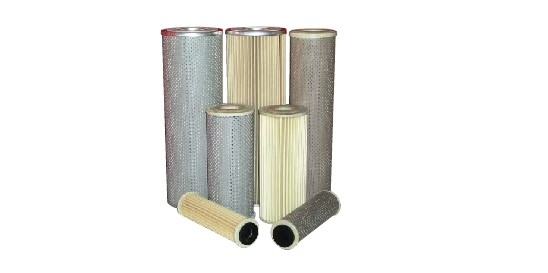Introduction
Hydraulic systems are the lifeblood of many heavy machinery and equipment, from construction vehicles to industrial manufacturing processes. These systems rely on hydraulic fluids to transfer power and perform various functions. To ensure the longevity and efficiency of your machinery, it’s essential to choose the right hydraulic filter. This crucial component helps maintain the cleanliness and integrity of the hydraulic fluid, preventing contamination that could lead to costly repairs and downtime. In this blog, we will discuss the importance of selecting the right hydraulic filter and provide you with a comprehensive guide on how to make the best choice.
Why Hydraulic Filters Matter
Hydraulic systems operate under high pressures and temperatures, making them susceptible to wear and contamination over time. Proper filtration is vital for maintaining the performance and longevity of these systems. Hydraulic filters play a critical role in this regard, as they are responsible for:
- Contaminant Removal: Hydraulic fluids can become contaminated with particles, water, and other impurities that can damage critical components like pumps, valves, and cylinders. Filters trap these contaminants and prevent them from circulating within the system.
- Maintaining Fluid Cleanliness: Clean hydraulic fluid is essential for smooth and efficient operation. A high-quality filter will help maintain the cleanliness of the fluid, reducing wear and tear on system components.
- Extending Equipment Life: By reducing wear and minimizing the impact of contaminants, hydraulic filters can significantly extend the life of your machinery. This translates to cost savings and reduced downtime.
- Enhancing System Efficiency: Clean hydraulic fluid allows for better heat dissipation and smoother operation, leading to increased efficiency and reduced energy consumption.
Now that you understand the importance of hydraulic filters, let’s dive into the essential factors to consider when choosing the right filter for your machinery.
-
Know Your System’s Requirements
The first step in selecting the right hydraulic filter is to understand your system’s requirements. Consider the following factors:
- Flow rate: Determine the required flow rate of the filter to ensure it can handle the volume of hydraulic fluid in your system. Oversized filters may restrict flow, while undersized filters won’t effectively remove contaminants.
- Fluid type: Different hydraulic fluids have specific compatibility requirements. Check if the filter is suitable for the type of hydraulic fluid used in your machinery.
- Operating pressure and temperature: Filters need to withstand the pressure and temperature conditions within your hydraulic system. Ensure the selected filter can handle the extremes your machinery operates under.
-
Filter Media
Filter media is the heart of any hydraulic filter. It determines the efficiency of particle removal and the filter’s overall performance. There are several types of filter media to consider:
- Cellulose: Provides good filtration efficiency for larger particles but may not be suitable for finer contaminants.
- Synthetic: Offers better particle removal efficiency and is more durable compared to cellulose media. It can handle higher pressures and temperatures.
- Stainless steel mesh: Ideal for applications where extreme conditions and fine filtration are required. Stainless steel mesh filters are highly durable and can be cleaned and reused.
Select the filter media that aligns with the level of filtration your machinery demands and the type of contaminants commonly encountered.
-
Filter Micron Rating
The micron rating of a hydraulic filter indicates the size of particles it can effectively capture. The lower the micron rating, the finer the filtration. When choosing a filter, consider the size of particles you want to remove and the system’s requirements. For example, if your machinery operates in a dusty environment, a filter with a lower micron rating may be necessary.
-
Filter Configuration
Hydraulic filters come in various configurations, including in-line, spin-on, and cartridge filters. Each has its advantages and is suitable for specific applications. Consider your machinery’s layout and access points when choosing the filter configuration.
- In-line filters are typically used in high-pressure systems and are installed directly into the hydraulic line. They provide excellent filtration but may be challenging to replace.
- Spin-on filters are easy to replace and are commonly used in mobile equipment. They come in a self-contained housing that can be easily unscrewed for filter replacement.
- Cartridge filters are versatile and can be used in various applications. They require a separate housing and are available in different sizes and materials.
Choose a filter configuration that best suits your machinery’s design and maintenance requirements.
-
Filtration Efficiency
Filtration efficiency is a crucial consideration when selecting a hydraulic filter. It is usually expressed as a Beta ratio, which indicates the filter’s ability to capture particles of a specific size. For example, a Beta ratio of 10 means the filter is capable of capturing 90% of particles of the specified size. Look for filters with high Beta ratios for better filtration efficiency.
-
Bypass Valve
A bypass valve is a safety feature found in many hydraulic filters. It allows hydraulic fluid to bypass the filter if the filter becomes clogged, preventing a sudden loss of pressure in the system. While a bypass valve can be useful, it is essential to choose a filter with a well-designed valve that doesn’t open prematurely. Otherwise, it may allow unfiltered fluid to circulate in the system.
Conclusion
Selecting the right Wrentham hydraulic filter is crucial for the performance, longevity, and efficiency of your machinery. It plays a vital role in preventing contamination, reducing wear and tear, and ensuring the smooth operation of hydraulic systems. To make the best choice, consider your system’s requirements, filter media, micron rating, configuration, filtration efficiency, and the presence of a bypass valve.
By carefully assessing these factors and understanding your machinery’s specific needs, you can make an informed decision when choosing a hydraulic filter. Investing in the right filter can save you time, money, and headaches in the long run, keeping your equipment running smoothly and reducing downtime. Remember that regular maintenance and filter replacement are essential for ensuring the continued performance of your hydraulic system.



